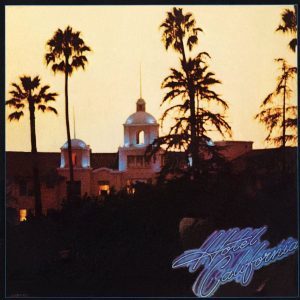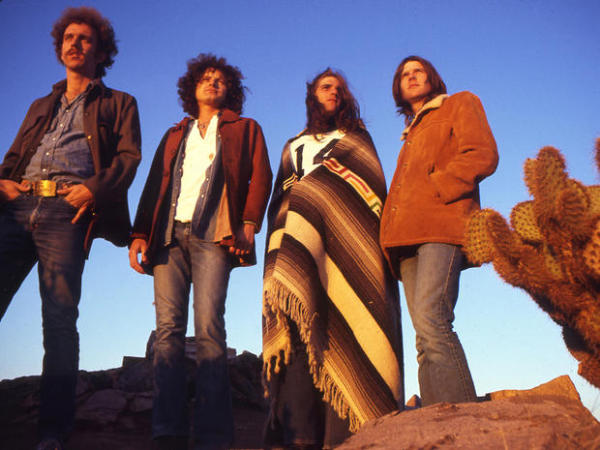WASHINGTON POST: Now that Glenn Frey — who died Sunday at 67 of complications from rheumatoid arthritis, acute ulcerative colitis and pneumonia, as The Washington Post’s Harrison Smith reported — is gone, we must recognize his many gifts. He helped build a band that lasted decades. He was a gifted songwriter. He had a great voice. He convincingly played a smuggler in a classic MTV video. Yet, it would be remiss not to note that many people — among them rock critics, cognoscenti and everyday folks who felt they heard “Hotel California” one too many times — really loathed the Eagles. They hated the band’s sound — or, at least, the laid-back, breezy California lifestyle that they took that sound to represent. They hated the band’s politics — or, at least, the post-hippie, cynical lack of politics that they thought the band embodied. And they definitely hated the band’s openly corporate business model. Robert Christgau, self-proclaimed “Dean of Rock Critics” and longtime Village Voice scribe, laid out the case against the Eagles in a landmark essay more than 40 years ago. “The Eagles are the ultimate in California dreaming, a fantasy of fulfillment that has been made real only in the hip upper-middle-class suburbs of Marin County and the Los  Angeles canyons,” Christgau wrote. “The Beach Boys sang about something similar a decade ago, but they also reminded us that happiness and material things are far from unconnected. The Eagles put that truth aside and pay only lip service to the struggle that real fulfillment involves.” He added: “Do I hate music that has been giving me pleasure all weekend, made by four human beings I’ve never met? Yeah, I think so. Listening to the Eagles has left me feeling alienated from things I used to love.” MORE
Angeles canyons,” Christgau wrote. “The Beach Boys sang about something similar a decade ago, but they also reminded us that happiness and material things are far from unconnected. The Eagles put that truth aside and pay only lip service to the struggle that real fulfillment involves.” He added: “Do I hate music that has been giving me pleasure all weekend, made by four human beings I’ve never met? Yeah, I think so. Listening to the Eagles has left me feeling alienated from things I used to love.” MORE
SNOPES: Because its lyrics contain an ominous undercurrent, many have appeased their sense of disquiet by finding in the words literal and figurative meanings that just aren’t there. Theories abound as to what the song means. Some see the devil in the lyrics. Others see a madhouse. […] However, by far the most common theme to surface in Hotel California rumors is one that links the song to devil worship. The lyrics (which speak of trying to “kill the Beast” and not having had “that spirit here since 1969”) form the bedrock of the various Satan-related theories, but the belief is also fed by the album design. The inner cover is a photograph of people in a courtyard of a Spanish-looking inn. In a balcony above them looms a shadowy figure with arms spread. Many who look at that photo see Anton LaVey, leader of the Church of Satan, and interpret the spread arms as his welcoming the populace below into Satan’s trap. That the people in the picture seem unaware of the gleefully evil figure standing above them only adds to the implicit horror of the scene — the innocents below are oblivious to their having wandered into the house of the Devil. It’s wonderful imagery. But it doesn’t hold up. The shadowy figure was a woman hired for the photo shoot. The truth proves far less satisfying than the myriad rumors that have sprung up around this song. Hotel California is an allegory about hedonism and greed in Southern California in the 1970s. At the time of its release, the Eagles were riding high in the music world, experiencing material success on a frightening level. Though they thoroughly enjoyed the money, drugs, and women fame threw their way, they were disquieted by it all and sought to pour that sense of unease into their music and to warn others about the dark underside of such adulation. MORE
BLENDER: This photo was taken by Henry Diltz in 1972 as part of the Eagles first album cover session…
“So we did their first album cover out in the desert, in Joshua Tree. We just drove out there in the middle of the night, climbed a mountain, ate peyote buttons, and spent the day laughing and taking photos.” – Henry Diltz.
After playing at the Troubadour in Los Angeles, the band and their three-person crew headed out for Joshua Tree, arriving at 4:30 a.m. According to Frey, they took with them peyote buttons, trail mix, tequila, water, marijuana and blankets. When they got there, they each took one peyote button, hiked up to where the shoot was going to be, lit a campfire and made some peyote tea. They started to feel the peyote as the sun was starting to rise and the shot was set to begin. Frey had to excuse himself to “use the bathroom” and as he was finishing, everybody from the campfire started yelling “eagle, eagle, eagle.” As he looked up, an eagle flew over him towards the campfire and sort of looked down at him as if to say, “Eagles, huh? I don’t think so.” MORE

